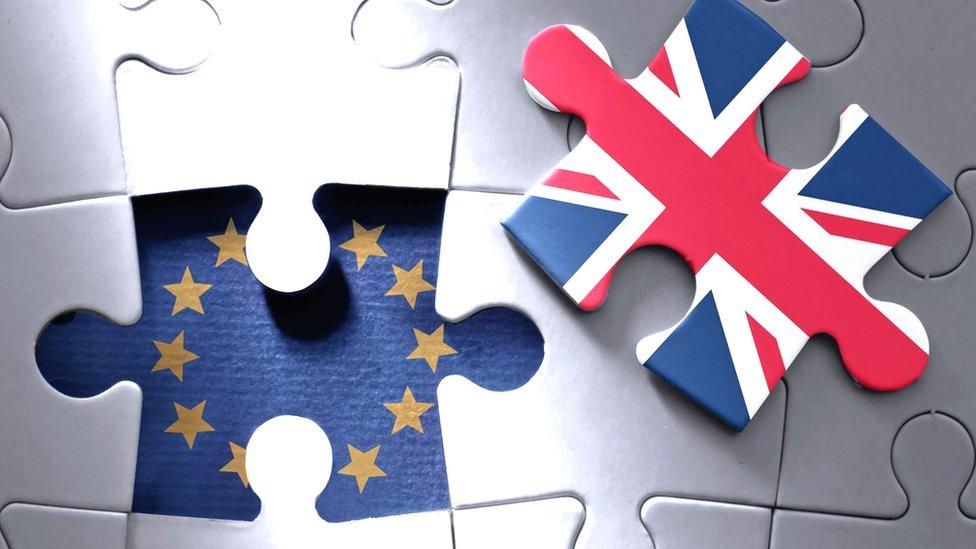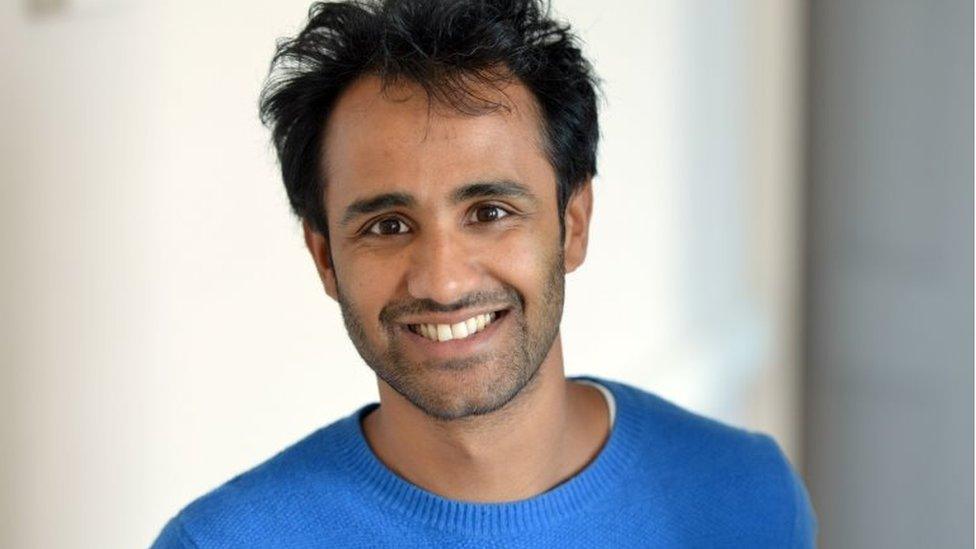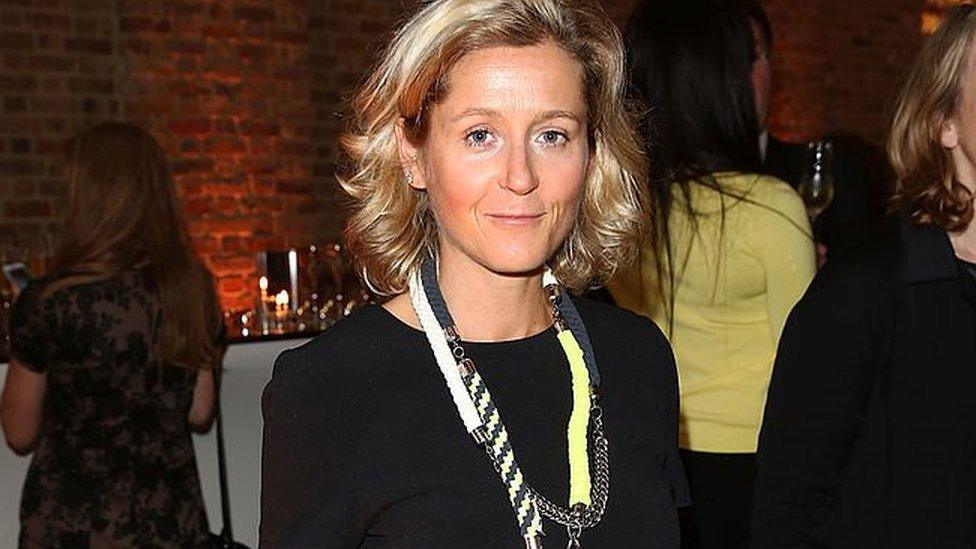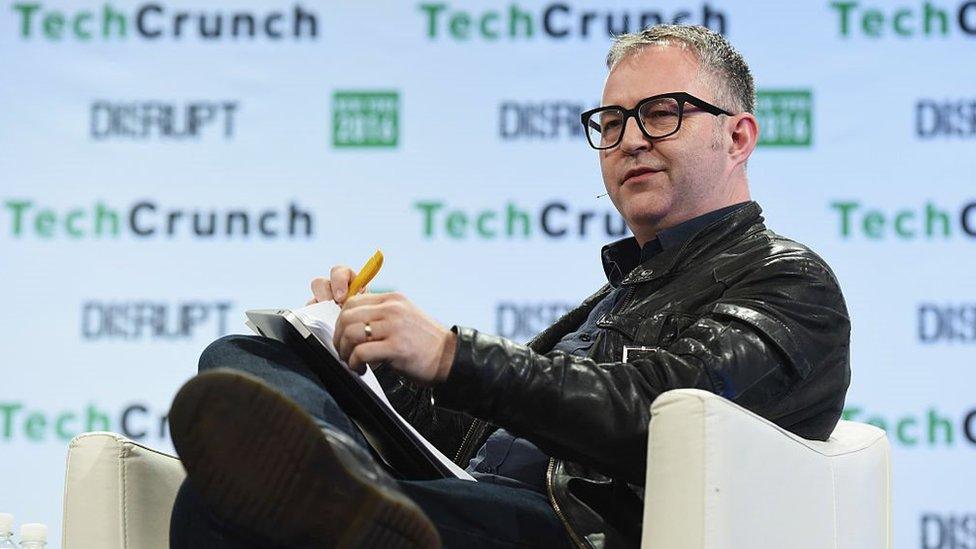Brexit: Tech leaders try to paint bright Brexit future
- Published

It is probably not controversial to say that the UK tech scene, and in particular London, was very much in the Remain camp in the EU referendum.
Tech entrepreneurs were worried about what Brexit would mean for access to the single market, the confidence of investors and their access to skilled staff from across Europe.
At an event at the Wayra tech incubator in London on the very day of the referendum, a secret ballot showed an overwhelming majority voting to remain.
But now some powerful voices in the tech community are trying to dispel the gloom and paint a brighter picture of the UK's post-Brexit future as a hi-tech hotspot.
Leading the charge was Rohan Silva, former Number 10 adviser and now the man behind the achingly cool Shoreditch start-up space Second Home.
Writing in the Sunday Times, external newspaper, he called on his fellow techies to cheer up, roll up their sleeves, and strategise for a profitable future.

Rohan Silva says machine-learning could "transform the efficiency of our immigration system"
His recipe included a big cut in taxes - in particular reducing corporation tax to 10% - and reforming the immigration system by using our expertise in machine-learning and data analytics to make it cheaper and faster.
Some sceptics questioned whether turning the UK into what they described as an offshore tax haven was really the way forward.
And the belief that machine-learning can magically produce an answer to the immigration problem will sound to many like the most naive brand of tech utopianism.
But Mr Silva's upbeat outlook - if not necessarily his tax-cutting recipe - was endorsed by Baroness Martha Lane Fox, now a director of Twitter and probably the best known person on the UK's tech scene.
"I'm an optimist - we have huge potential," she told me. "Let's use the power of the internet as a force not just for business growth but social cohesion and growth."
Her focus, however, is not so much on London tech start-ups, but addressing the concerns of those from the communities that voted to leave.

Baroness Fox thinks the internet could be a cohesive force
"It's interesting that when asked if the internet is a force for good, over 70% leavers said no," she said.
"This is something to address in rural and excluded communities - we should use the miracle of connectivity to connect ourselves together better."
Baroness Fox has faith in the power of technology to see us through the short-term turbulence.
But that isn't to say there won't be pain along the way for the tech sector.
I've spoken to an entrepreneur who has already experienced that pain.
The man, who did not want to be named, has spent the past three months on a funding round for his growing technology business.
He says there was already a "chilling effect" on venture capital in the run-up to the referendum.
"They were sitting on their hands waiting to see what happened," he said.
Then at 10:00 BST on Friday morning, he got a call from the manager of a fund that had signed up to invest in his business.
"He said they were pulling out - I asked why. He said that after today's news I shouldn't be surprised," he said.
The entrepreneur believes it will be hard to get investors to step forward until the future is clearer.
"Too many unknowns, too many risks," he said.
Techcrunch's editor-at-large Mike Butcher, who knows more about the European tech scene than just about anyone, remains optimistic about the UK's long-term prospects. But he has profound concerns about the here and now.

Techcrunch's Mike Butcher says he has been told of start-ups losing their funding
He too has been in touch with several tech start-ups that have had funding postponed or withdrawn since the referendum result.
As well as access to the single market - and the digital single market which is being negotiated right now - he says it's talent that is the key issue.
"Tech start-ups don't just run on cash, they run on people," he said.
"Without access to EU talent, many early stage firms will struggle to find the talent they need."
The UK - and London in particular - remains an attractive location for anyone looking to start a technology business. But Berlin, Dublin and other European cities are already making encouraging noises to anxious companies thinking of moving.
Mind you, there is an alternative - stay in the UK but apply to Estonia for e-residency allowing you to run your business from inside the EU.
The e-Estonia organisation has been marketing this service over the weekend - and it tells me it has seen almost a tenfold increase in visits to their website from the UK in the days following the referendum.
Perhaps a virtual bridge is being built between London and Tallinn that means trade will prosper whatever the UK's relationship with the EU.